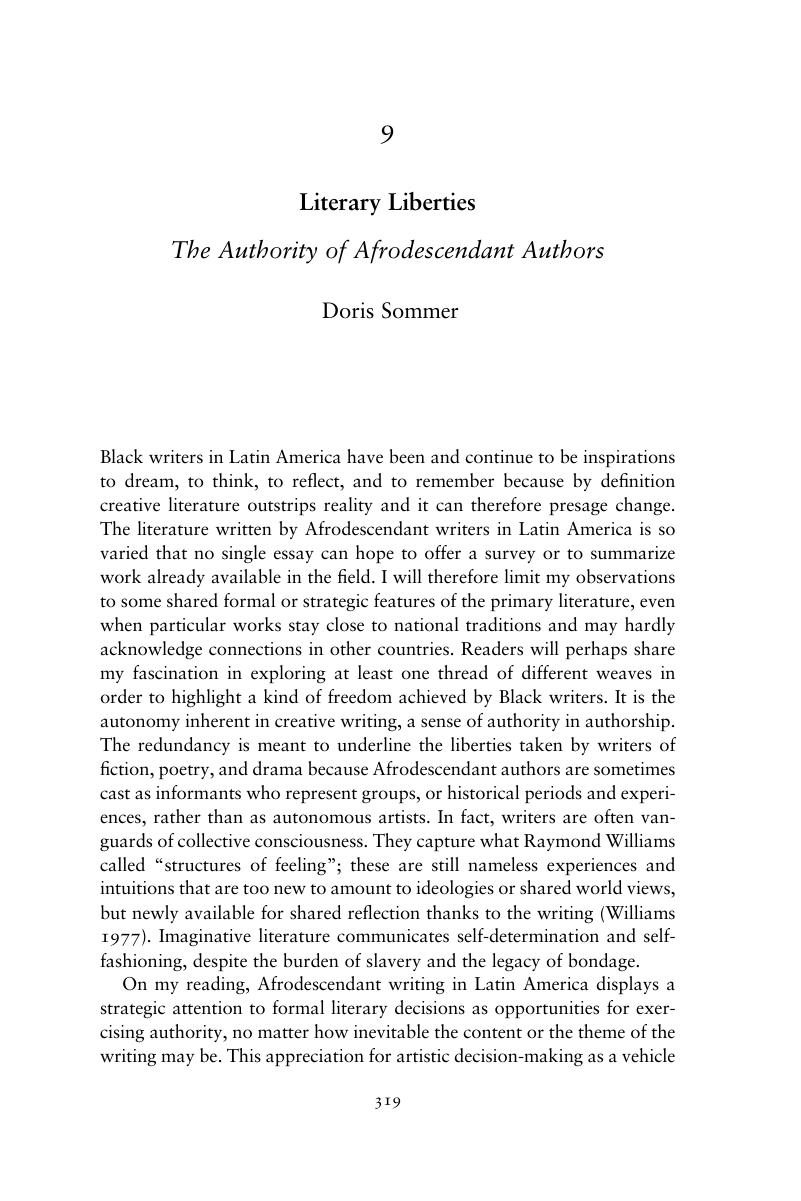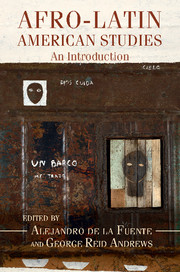Book contents
- Afro-Latin American Studies
- Afro-Latin America
- Afro-Latin American Studies
- Copyright page
- Contents
- Figures
- Tables
- Contributors
- Acknowledgments
- 1 The Making of a Field
- Part I Inequalities
- Part II Politics
- Part III Culture
- 9 Literary Liberties
- 10 Afro-Latin American Art
- 11 A Century and a Half of Scholarship on Afro-Latin American Music
- 12 Afro-Latin American Religions
- 13 Environment, Space, and Place: Cultural Geographies of Colonial Afro-Latin America
- Part IV Transnational Spaces
- Index
- References
9 - Literary Liberties
The Authority of Afrodescendant Authors
from Part III - Culture
Published online by Cambridge University Press: 24 April 2018
- Afro-Latin American Studies
- Afro-Latin America
- Afro-Latin American Studies
- Copyright page
- Contents
- Figures
- Tables
- Contributors
- Acknowledgments
- 1 The Making of a Field
- Part I Inequalities
- Part II Politics
- Part III Culture
- 9 Literary Liberties
- 10 Afro-Latin American Art
- 11 A Century and a Half of Scholarship on Afro-Latin American Music
- 12 Afro-Latin American Religions
- 13 Environment, Space, and Place: Cultural Geographies of Colonial Afro-Latin America
- Part IV Transnational Spaces
- Index
- References
Summary

- Type
- Chapter
- Information
- Afro-Latin American StudiesAn Introduction, pp. 319 - 347Publisher: Cambridge University PressPrint publication year: 2018

